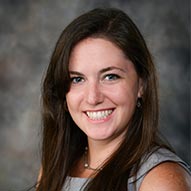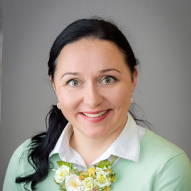Dallas
214-456-2382
Fax: 214-456-6133
Plano
469-303-4400
Fax: 469-303-4420
Referrals
Request an Appointment with codes: Cancer and Blood Disorders (CCBD)
The word “sarcoma” means a tumor that grows in the bones or soft tissue. Children’s Health has an academic affiliation with UT Southwestern Medical Center and is a national leader in treating and studying a variety of pediatric sarcomas. We use a team approach where experts with different specialties work together to give your child the best opportunity for a good outcome.
214-456-2382
Fax: 214-456-6133
469-303-4400
Fax: 469-303-4420
Request an Appointment with codes: Cancer and Blood Disorders (CCBD)
Pediatric sarcomas include a number of different cancers that affect children. All of these cancers involve tumors that grow from cells in a child’s bones or soft tissue. Sarcomas can also spread to other areas of the body.
Pediatric sarcomas fall into two main categories: bone sarcomas and soft tissue sarcomas. Each category includes two types.
Symptoms vary from child to child, depending on what type of sarcoma they have and where it is. Symptoms for each type of sarcoma can include:
Bone sarcomas may first cause swelling and pain where the tumor is located. Other symptoms may develop if the cancer spreads. Symptoms may include:
Soft-tissue sarcomas can start anywhere in the body, so they have many different symptoms. These include:
Generally, we identify the type of sarcoma by taking a sample of the tumor and studying its DNA. Then we take detailed pictures of the tumor, through tests like an MRI and PET-CT scan. These images show us how big the tumor is and whether it has spread to other places in the body.
We use the type, size and location of the tumor to decide which treatment will work best for your child.
Unfortunately, no one knows what causes these tumors.
We offer several different treatments. Our pediatric oncologists work closely with the surgery and radiation oncology teams to provide seamless care throughout the course of treatment. Our surgeons have expertise in performing complex surgeries, such as limb salvage or rotationplasty, that are used to treat osteosarcoma and Ewing's sarcoma. Our radiation oncologists use cutting-edge techniques to effectively kill the tumor cells while also minimizing toxicity.
At Children’s Health℠, we always look for new and better treatments. Our patients have access to clinical trials that might only be available at a handful of hospitals. We provide access to the newest treatment options for patients with relapsed cancer through clinical trials offered in our Experimental Therapeutics Program. We also use genetic testing, through our Precision Medicine Program, to identify genetic mutations that can be targeted with medications, providing a more effective treatment with fewer side effects.
Children’s Health is home to some of the nation’s top pediatric cancer specialists and where physicians are also faculty members at UT Southwestern Medical Center. We use a team approach and work together with surgeons, radiation oncologists, pathologists, radiologists, physical therapists, psychologists and social workers to provide multidisciplinary care.


We use teamwork and creativity to find the best ways of treating all kinds of pediatric sarcomas. Our academic affiliation with UT Southwestern Medical Center enables us to study new treatments and offer clinical trials of promising new therapies before they’re widely available. We were the first center in the U.S. to perform many studies and methods in this area. This includes an ongoing study on how sarcomas grow. Studies like this can lead to new and more effective ways of treating sarcomas and helping kids live cancer-free.
It depends on the disease. The survival rate is often high for localized tumors (ones that don’t spread to other parts of the body). Sarcomas that spread are harder to cure, but many children do survive. Our After the Cancer Experience (ACE) survivorship program monitors patients for the long-term effects of cancer and cancer treatment throughout their lifetime.
Sarcomas usually form deep inside the body. On the surface, the lump may appear to be a small mound or swelling. It may feel hard and pressing it may hurt the tissue nearby.